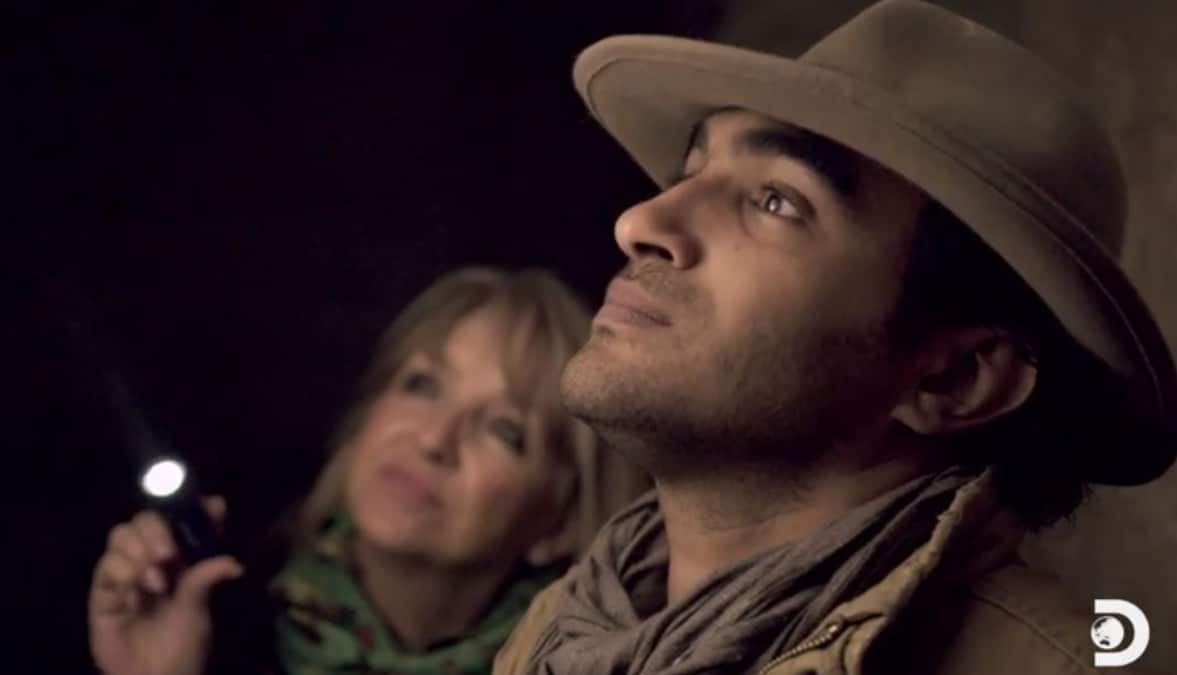
On tonight’s Mummies Unwrapped, Ramy Romany may just rewrite the ancient histories of both Christianity and Judaism.
Egyptian Pharaoh Akhenaten may have been Moses, and the old testament biblical stories of the Jewish hero who led his people out of Egypt may not have the whole true story.
In Monsters & Critics exclusive clip, Ramy takes us to the tomb of King Akhenaten’s scribe.
Dr. Jayne Vine, an Egyptologist, accompanies Ramy Romany to a very special tomb where Egyptian hieroglyphs reveal that an Egyptian king was the one who bore the two cartouches that had the commandments – not the Moses we have come to learn from the bible and Charlton Heston’s biblically themed movies.
Who was King Akhenaten?
Called the first monotheist and “the Heretic King” by many scholars, Egyptian Pharaoh Akhenaten was alive in the mid-14th century B.C.E. and he ordered his subjects to worship only one god: the sun-disk Aten.
Originally his name was Amenhotep IV, and he reportedly reigned from about 1352 to 1336 B.C.E.
Dr. James Hoffmeier, Professor of Old Testament and Ancient Near Eastern History and Archaeology, Trinity Evangelical Divinity School said in a university lecture:
In the fifth year of his reign, he moved the royal residence from Thebes to a new site in Middle Egypt, Akhetaten (“the horizon of Aten,” present-day Tell el-Amarna), and there ordered lavish temples to be built for Aten. Akhenaten claimed to be the only one who had access to Aten, thus making an interceding priesthood unnecessary.
As Ramy and Dr. Vine make their way into the scribe’s tomb, Ramy says: “Many historians believe that Akhenaten relocated the capital to Amarna to undermine the priests of Thebes. But others insist that Akhenaten was forced into exile, and fled north with the Egyptian army in pursuit.”

“They believed this was punishment for imposing monotheism,” Ramy continues. “If this version is correct it does sound a lot like the biblical account of Moses leading his people into the Exodus.”
A royal scribe was a keeper of the texts little is known of Akhenaten.
He adds: “Most of these tombs are now empty including the tomb Akhenaten built for himself here but I’ve gotten access to the tomb of Akhenaten’s royal scribe, a tomb that hasn’t been opened for 50 years. The royal scribe is the most trusted advisor to the king and possibly kept all his secrets.”
Reading the walls, Ramy says: “But his scribe had access to all the Pharaohs secrets. If there is a record of what happened to Akhenaten…it is in this tomb.”
Exploring the etchings on the wall, Ramy says: “There is a lot of these scenes of Akhenaten in presenting offerings to the gods…. this is the only one where he is presenting cartouches with hieroglyphic inscriptions on them.”
Dr. Vine puts a fine point on the moment: “In Judaism, the tablets are the words of God given to Moses. The Ten Commandments of the tablets given from God.”
Ramy paraphrases the hieroglyphs he is reading and says: “This means that I am holding the words of God… this could easily be describing Moses.”
Mummies Unwrapped airs Wednesdays at 10/9c on Discovery Channel.